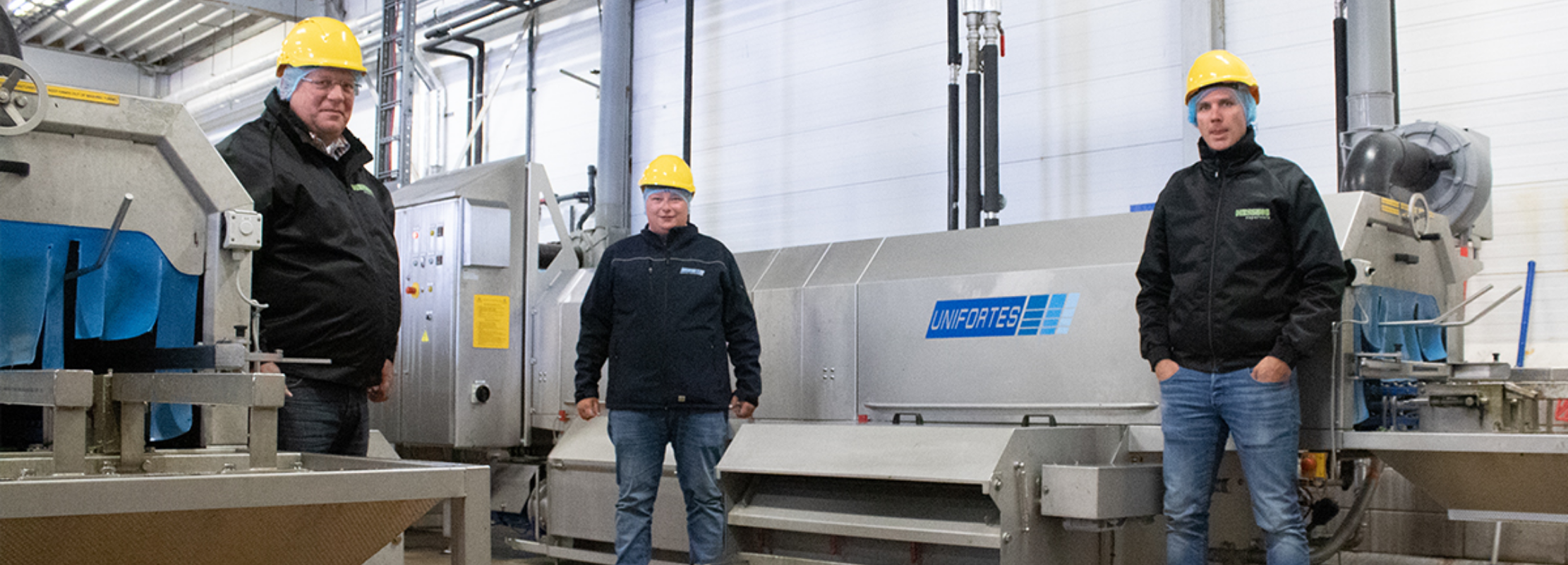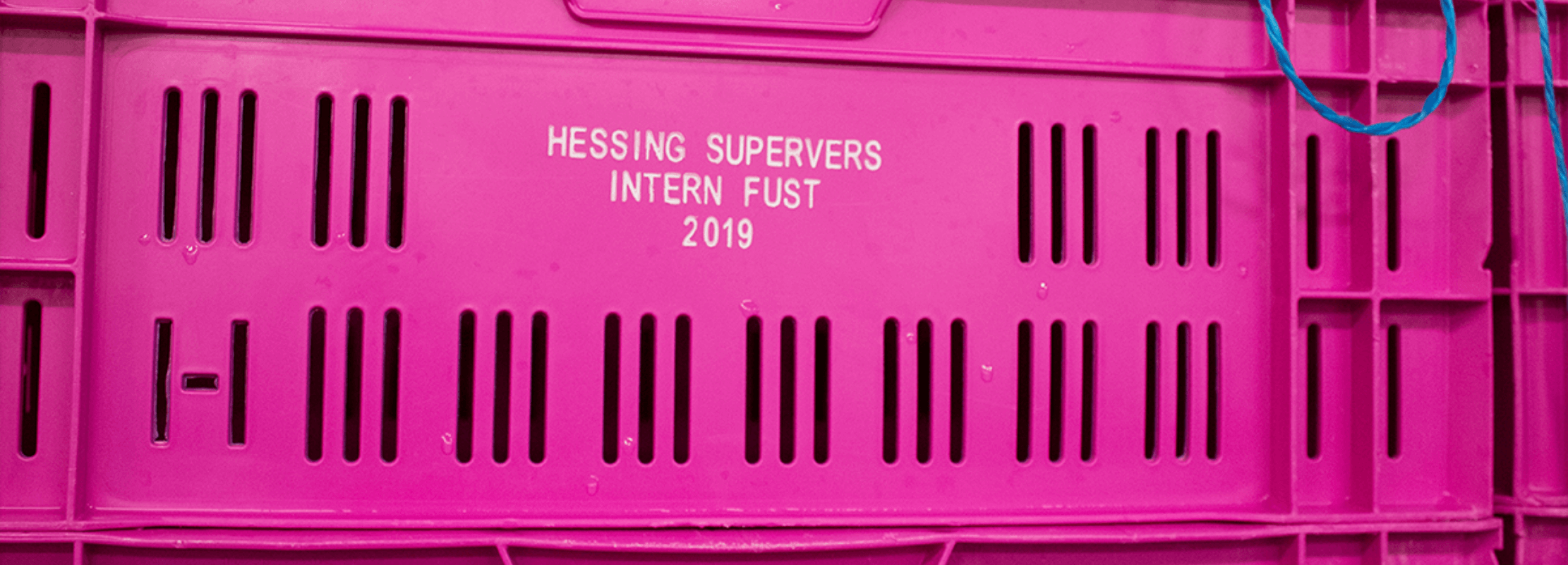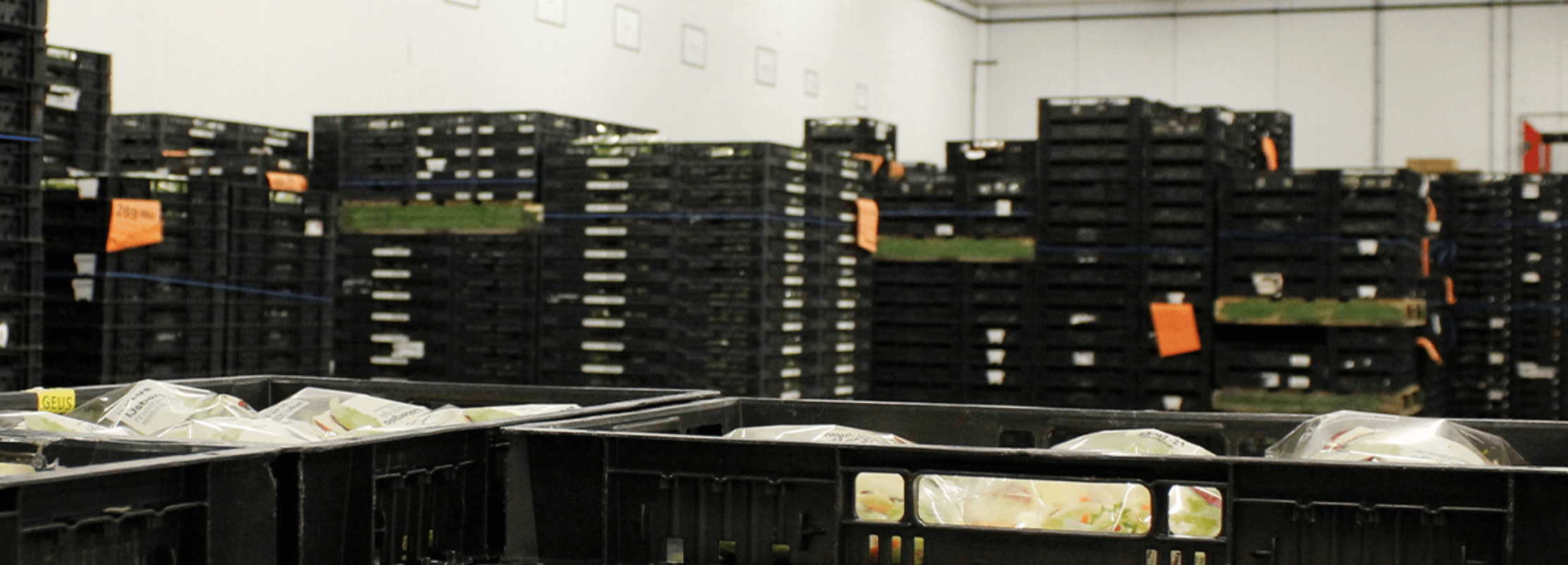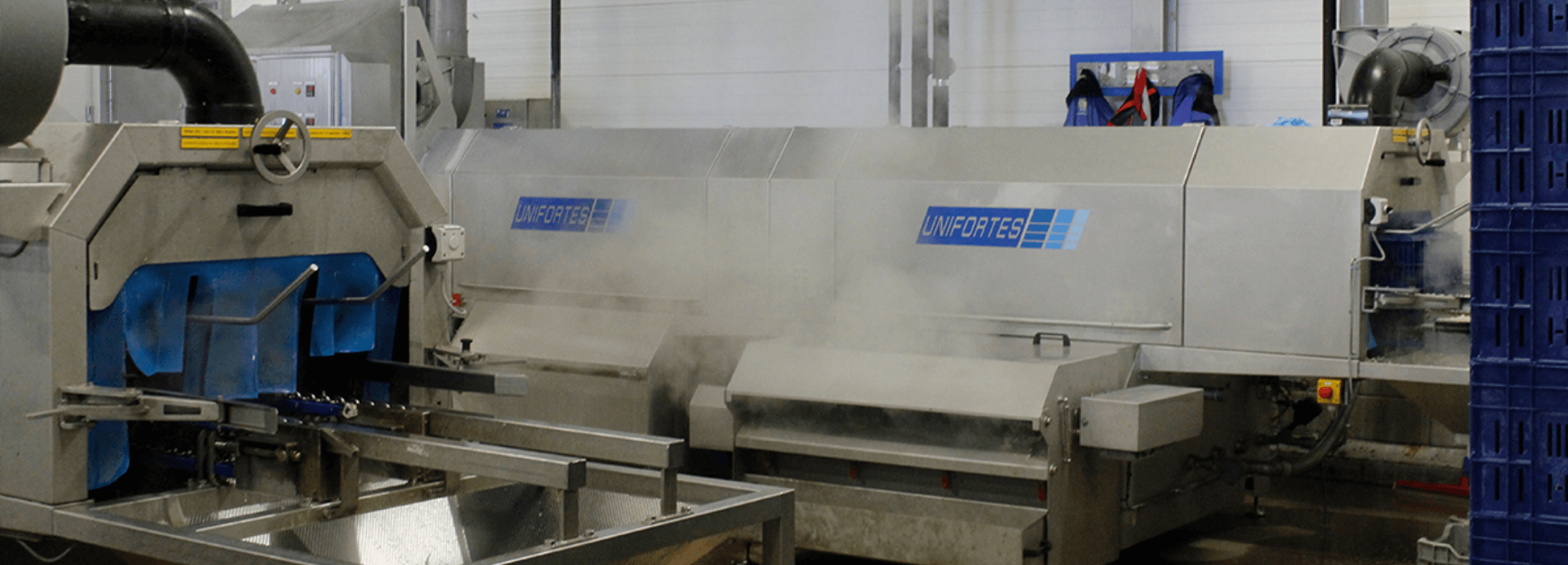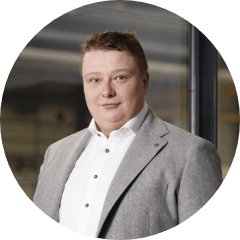New crate washing lines at Hessing Supervers ready for automation
From the editors of Groentennieuws, Tholen - Since March this year, two new crate washing lines at Hessing Supervers in Zwaagdijk have been processing 40,000 crates every day. These are serious numbers for the vegetable processor that has grown rapidly over the past five years. That is why Hessing Supervers will open a new location next year, Hessing Greenport Venlo, with state of the art automation of the processing process of fresh vegetables. This new location will soon offer sufficient opportunities to expand capacity and further automate, mechanize and robotize Hessing’s production processes.
The location in Zwaagdijk will remain in use for a few mono lines. That is why Hessing Supervers, together with Unifortes, one of its suppliers, looked at improvements of the washing process in Zwaagdijk in North Holland. “Working per pallet would be nice, but we work per crate here”, Cees Benard, project leader of the Operational Excellence department, immediately indicates the complexity. Together with his team, he takes care of the machinery that is involved in the processing of washing, cutting, drying and packaging of about fifteen types of vegetables. “We use about ten different crates, which have to be cleaned every day.”
Cleaning process
For the processing of all types of vegetables, the machines mainly run at night and during the day. The cleaning always takes place at the end of the afternoon and in the evening. From Monday to Sunday, Hessing Supervers runs production in this way to prepare all possible mixes of vegetables in consumer packaging from 100 grams to large catering packaging of 2.5 kilos.
Washing machines were already used within the process. They have now been replaced by two new ones. Cees, in consultation with project manager Jeroen Spruit of Operational Excellence, who is responsible for the machinery at all locations of the vegetable processor, selected the new installation. The choice ultimately fell on Unifortes. During the decision-making process, Cees kept close contact with Roy Kranendonk, regional sales manager at the machine builder.
High capacity
Unifortes came to install the machines in March. A considerable job for which there was little time, because it was important for Hessing Supervers to allow the production process to continue in order to be able to continue to supply their customers. Cees: “On Friday the plugs from the existing installation were removed and on Monday we plugged in the new machines again. That went quickly and well.”
Since then, the two lines have a capacity of 2800 crates per hour, good for 40,000 crates per day. Even more capacity can be achieved, Roy estimates. “1600-1700 crates per hour per washer is feasible.” Cees nods in agreement. “Yes, 3000 crates per hour can certainly be achieved on these two lines without having to switch between types of crates.”
Automation
Without exchanging. However, the latter is the order of the day and is done manually in Zwaagdijk. Automatic is possible, the new Unifortes machines are designed for this. That comes in handy in Venlo. One of the two new lines may also move in that direction next year to continue operating automatically in the new factory.
The factory in Venlo will be about four times as large as the factory in Zwaagdijk. Jeroen tells us that the pre-engineering for the factory has started. Construction started on 1 April. It is not yet known exactly how the factory will be equipped with, among other things, washing machines, of which three to four are provided. Choices about suppliers have not yet been made.
What is certain is that the washing process in Venlo will be more streamlined with far-reaching automation. Where in Zwaagdijk many people still help to ‘feed’ the machines with crates, this will soon be done automatically in Venlo.
Roy indicates that for such applications factories are already working with crates ‘on code’. In combination with software, this makes keeping a good overview of the packaging and remotely controlling the crates possible.
Packing
Another trend in the field of industrial cleaning is the growing importance of getting packaging as dry, and of course clean, as possible. Roy: “With the developments in the field of packaging, there is a growing demand for the use of paper and cardboard packaging instead of plastic. You understand that if a crate is only a little bit wet, that that does not work well for companies. It is up to us to respond to these trends in terms of adapting our machine portfolio.”
In the near future, Hessing Supervers itself will also pack uncut vegetables in addition to sliced products. It is the result of the acquisition of the fresh packages from The Greenery earlier this year. Jeroen calls it an example of how dynamic and continuously changing the sector is. “For a while it looked like this trend was over, but lately it’s resurfaced. In times of corona, an unprecedented amount of unprocessed vegetables was sold in the fresh produce departments of the supermarkets. Much more time has been created for cooking and, as a result of the virus, even more attention to healthy food.” Hessing expects to deliver fresh packages from week 40.




 Frans
Frans  Spaans
Spaans  Portugees
Portugees  Pools
Pools  Russisch
Russisch 